
18:14, 30-Dec-2016
Business after the bubble
Updated
10:29, 28-Jun-2018

Inside the collaborative workspace that embraces full occupancy rates after the industry went through a market bubble.
At first glance, it looks like a party for tech lovers in a huge modern-style loft, with people playing with the most up-to-date, cutting-edge gadgets. But behind the fun is an ecosystem that is helping some of China’s most interesting startups thrive and grow.
This is the opening event of Tech Temple’s fifth collaborative workspace, located in Wangjing area, the newly hotspot for tech startups and enterprises in Beijing.
Founded in September 2013, Tech Temple claims to enjoy a 100% occupancy rate from various tech startups and the survival rate of startups tops 90%. A dozen startups that use their facilities are also going to be listed on the New Third Board, a national share transfer system for small and medium-sized enterprises, in 2016.
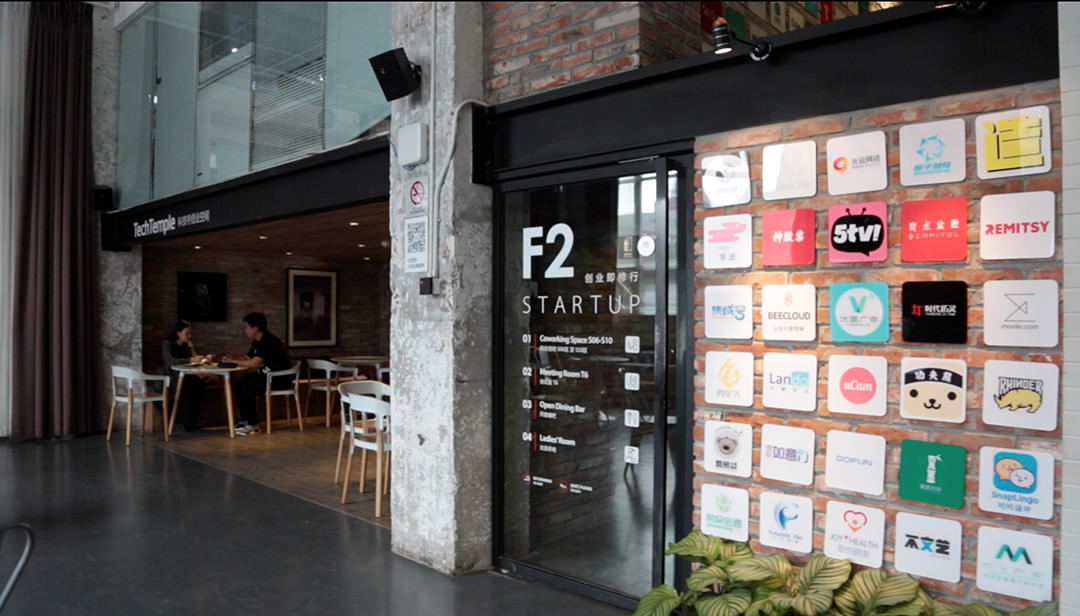
All this is good news when you contrast it to reports earlier this year that two relatively big “incubators” that helped startups in south China’s city of Shenzhen closed for business.
Despite the closures in Shenzhen, 2015 saw the growth of innovation spaces in major cities across China. In March 2015, China’s central government embraced the concept of collaborative workspaces for the first time in an attempt to encourage innovation and entrepreneurship.
By the end of 2015, China had more than 2300 collaborative workspaces and nearly 3000 incubators, focusing on technology innovation. However, around 1,000 could run into liquidity problems, warned the Bluebook of The Development of Group Innovation Space in China, a joint research project by multiple Chinese think tanks, which was published in April.
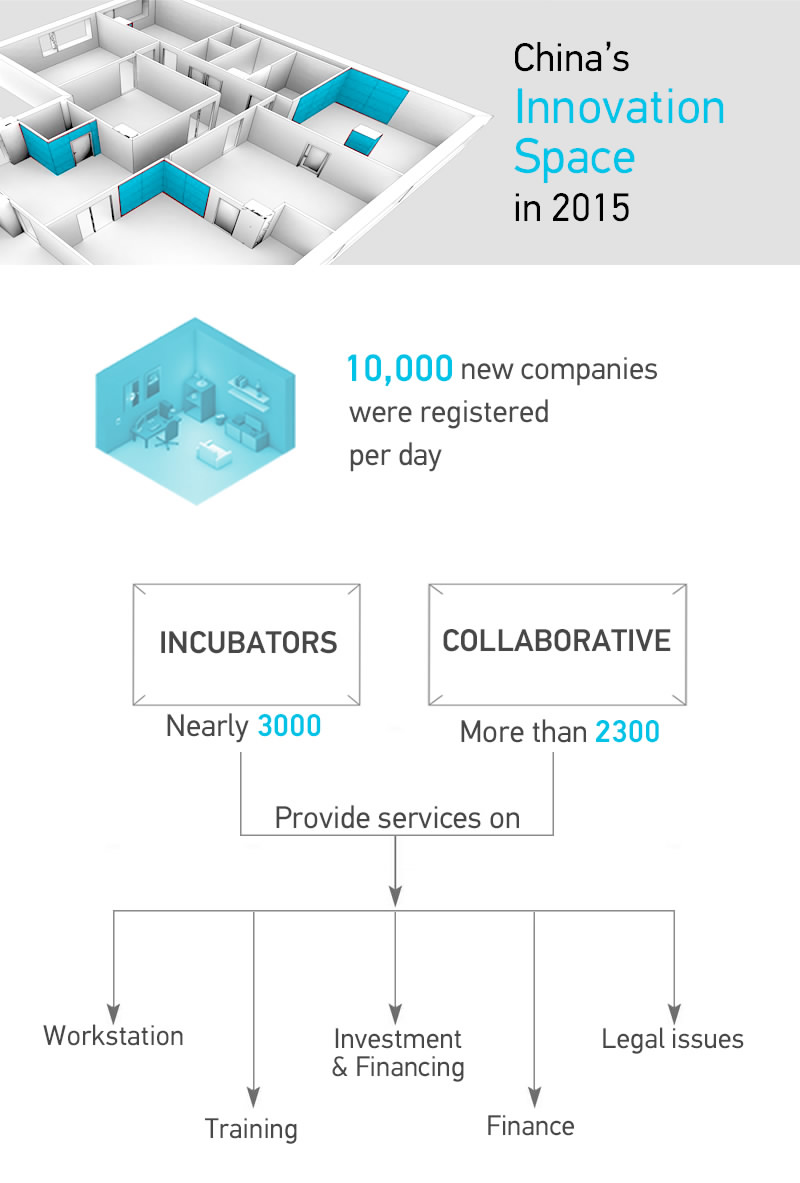
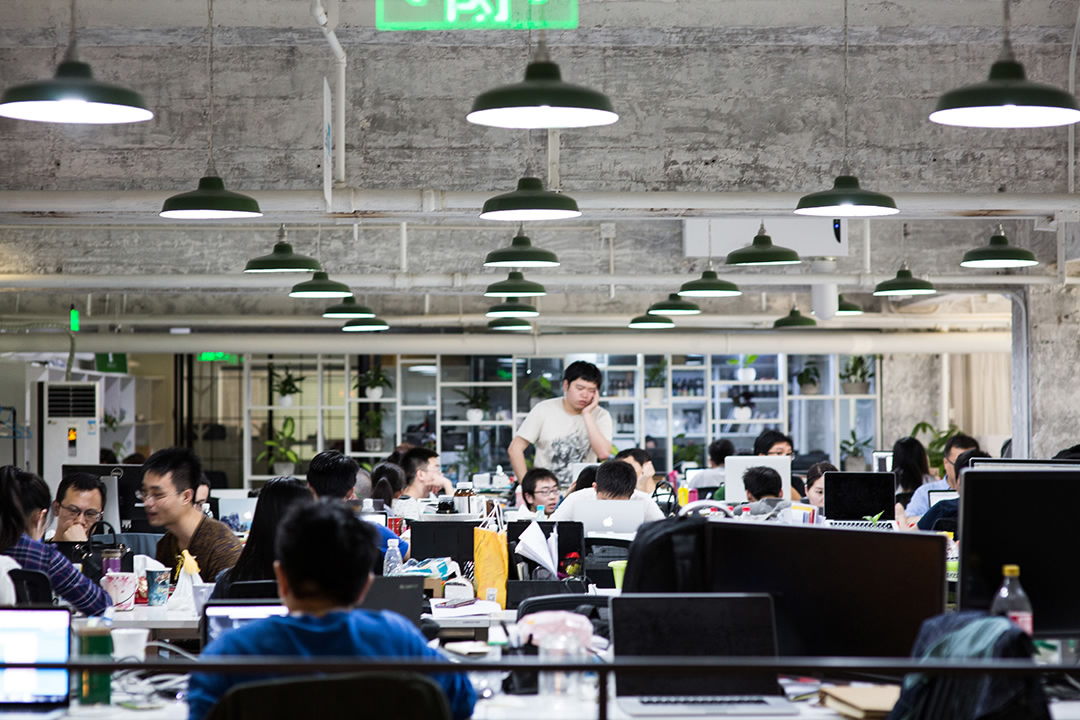
With an average monthly rent of 2,000 yuan per workstation in cities like Beijing and Shanghai, the cost of space is not cheap for startups compared to owning an independent workspace.
What they need is extended services that come with the space. Data from IResearch suggested that subletting remains a dominating service to 81.2% of all of China’s incubator businesses.

"Collaborative workspace experienced a bubble and while that bubble hasn’t burst, the market has cooled down, which can be viewed as a good sign. What remains are the powers who truly want to and can survive in this industry."
- Wang Hao, Founder of TechTemple
"Don’t expect quick profits from this industry, after all, it’s not a lucrative sector like the real estate industry,” says founder Wang Hao, who is content with just making ends meet.
However, Wang has reason to be confident. Starting up and running his own Internet business, Goyoo Networks, for more than 10 years, Wang aims to enlarge TechTemple from just being yet another brick-and-mortar space, to a whole innovative ecosystem.
“We already feel rewarded by getting people to get together through Tech Temple. You could see me as an entrepreneur who wants to give back to the industry.”
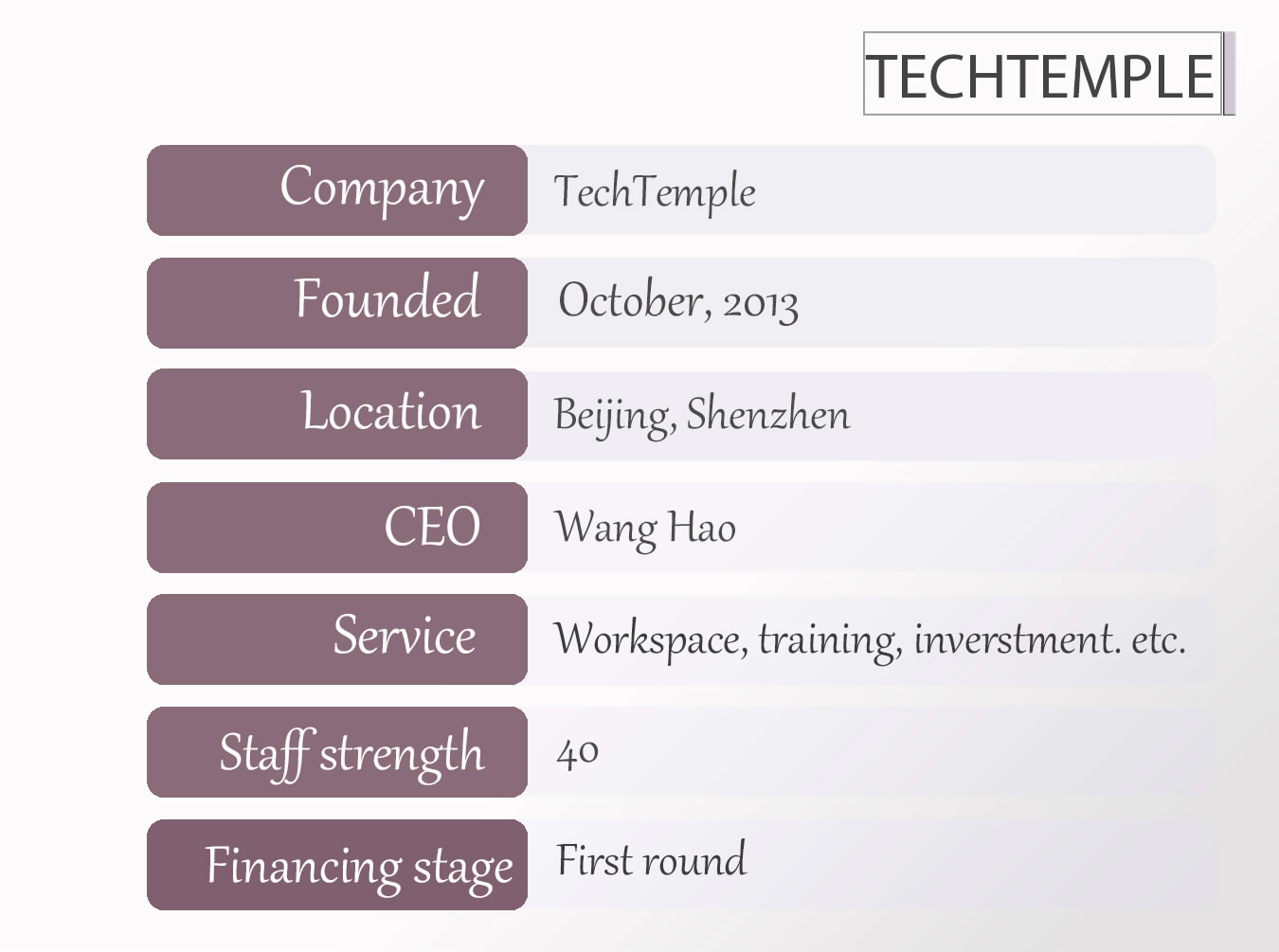
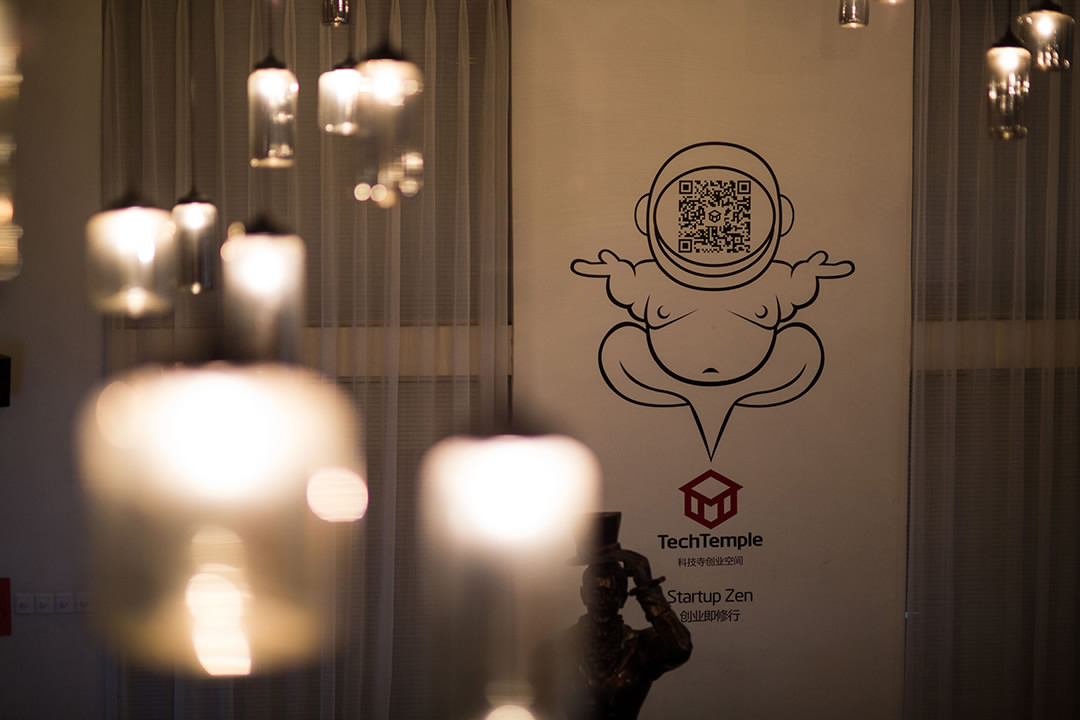
TechTemple may stand out thanks to its dedicated style of design and lively atmosphere, especially since people born after 1990 make up the core managing staff of its five spaces, but it is becoming an increasingly crowded field. China’s overheated real estate has also attracted tycoons to develop mobile working spaces, either as co-working spaces or incubators.
Both SOHO 3Q, founded by property developer Pan Shiyi, and Stargeek, powered by Lenovo, are enjoying soaring occupancy rates among startups.
From 30 to 3,000, analysts say that the incubator industry has seen steady growth from its first appearance in China in 1987. Also, as startups themselves, the collaborative workspace industry is going through a fine-tuning process as well. But the market is expanding, so much so that international big names, such as WeWork, are looking to China’s market to expand their business.

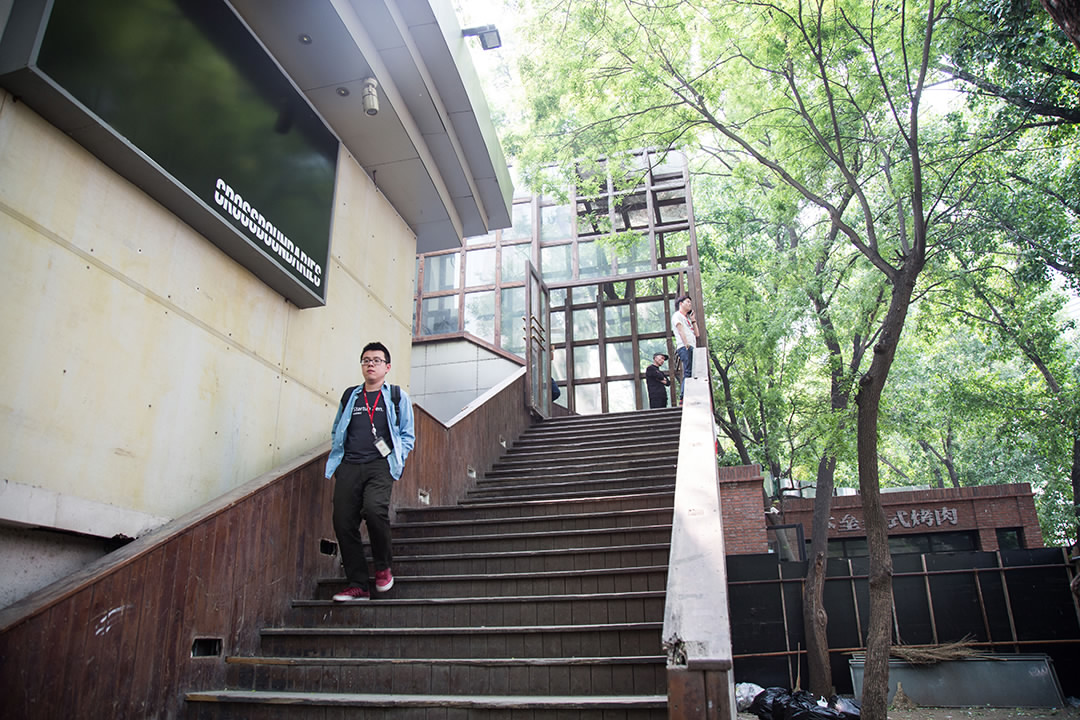
For most startups, it could take years to achieve stable profits. Before that, everything is experimentation. The team of DailyCast, a video format mobile magazine, has been a long-term tenant of co-working spaces. Its founder, Ye Zhewei, told CCTVNEWS building their own office is not an option until the company becomes profitable.
“You enjoy a convenient location for transportation and absorb the energy from other startups, while at the same time, you could concentrate more on the business without worrying about the other problems that come with owing an office.”
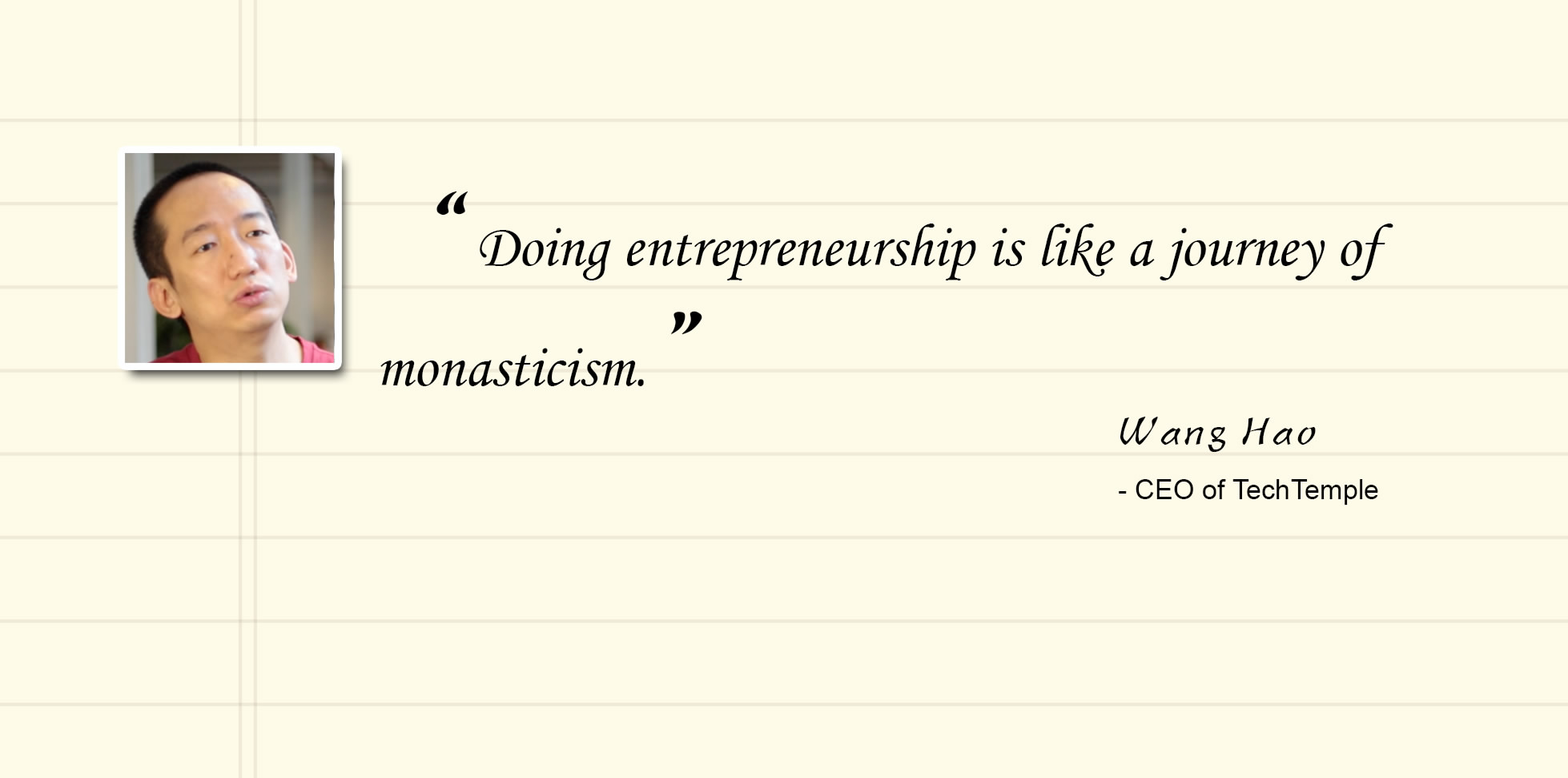

SITEMAP
Copyright © 2018 CGTN. Beijing ICP prepared NO.16065310-3
Copyright © 2018 CGTN. Beijing ICP prepared NO.16065310-3